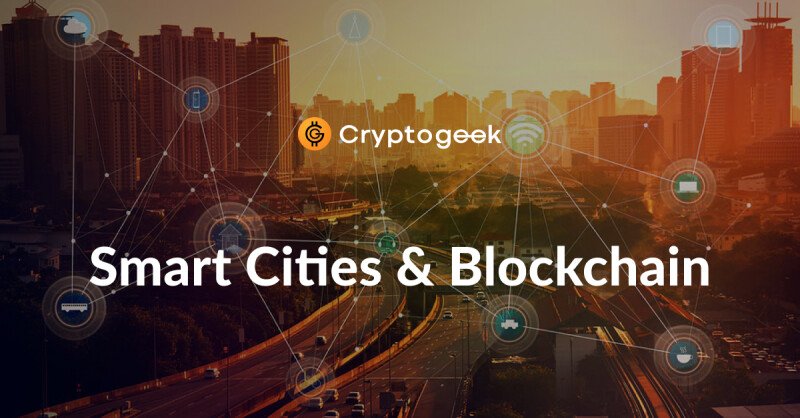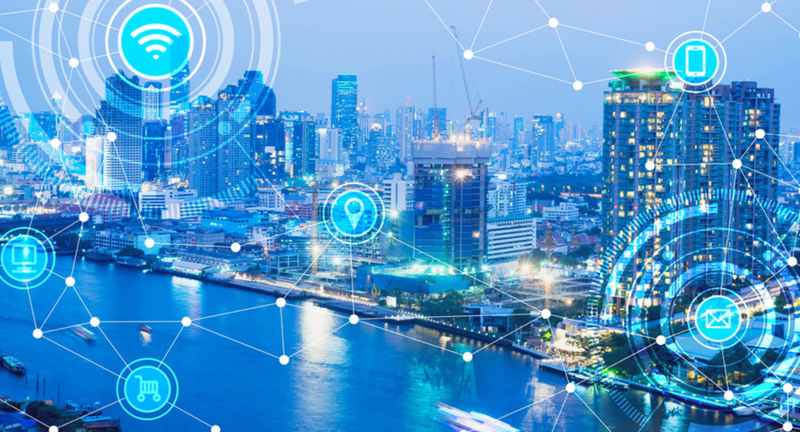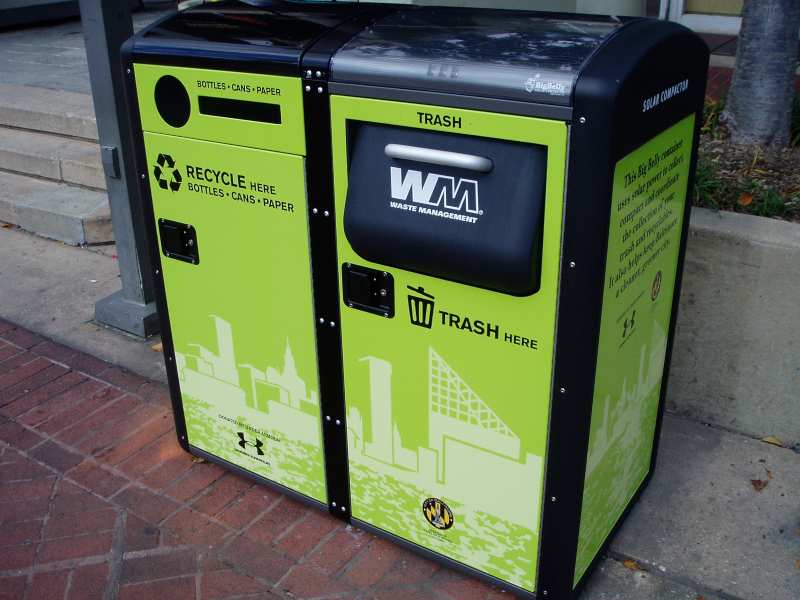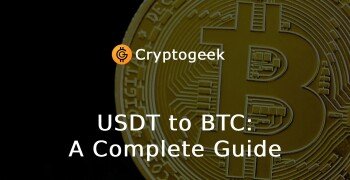Blockchain and the Future of Urbanism - Expert Opinion


Have you ever heard of "smart cities"? That's what blockchain technology applied in the urbanism sphere is going to give us. The light bulbs won't waste energy when no one is around. The drivers won't waste time on the search for a vacant parking space, as the system will provide available options to each driver. These and other implementations of the Internet of Things technology are only a few examples of the features of smart cities. We believe that in the future, the IoT and blockchain (and other distributed ledger technologies) will shape the new efficient, safe, and comfortable urban environment.
Blockchain Meets the Internet of Things
Consolidation with blockchain seems to be inevitable for the IoT as thousands and thousands of devices become connected to the Internet. It means that all of these things generate data and create digital trails. Blockchain has proved its capability of preserving the authorized access to sensitive data, keeping the data immutable and legit, protecting it from all kinds of intrusions and manipulations. For the Internet of Things, these qualities are critical. We can (if only we can) imagine the chaos that can be triggered by the corruption of the data associated with the connected things (smart devices). Quality blockchain platforms are unhackable due to their decentralized nature. This feature is extremely important for IoT ecosystems. Essentially smart cities will be such ecosystems as well.
Smart Cities Today
Actually, smart cities are not entirely a phenomenon of the future. Many use cases based on the combination of the IoT and blockchain technologies already happen in certain places. The automatic system providing drivers with info about the parking spaces mentioned above is active in Barcelona for quite a bit. In some cities, people use energy grids associated with blockchain-based software that helps them to share, trade, save, and buy energy. These solutions are eco- and budget-friendly.
 It is safe to say that Estonia is one of the world apostles of blockchain. The authorities of this country were first to recognize the benefits of blockchain technology and start widely implementing it on the national scale. Estonians use the online services associated with such sensitive things as voting, healthcare, banking, and so on, confidently as they were explained that blockchain protects their data and privacy, as well. They have digital identities that allow them to see if someone was trying to access their data for this or that purpose.
It is safe to say that Estonia is one of the world apostles of blockchain. The authorities of this country were first to recognize the benefits of blockchain technology and start widely implementing it on the national scale. Estonians use the online services associated with such sensitive things as voting, healthcare, banking, and so on, confidently as they were explained that blockchain protects their data and privacy, as well. They have digital identities that allow them to see if someone was trying to access their data for this or that purpose.
Similar IDs can be used for interaction with the urban realm. Think of that, digital identifiers can be used to share thoughts with city planners. Moreover, the latter will have access to useful statistics gathered via these IDs. Planners will see how the city spaces are used, misused, or ignored. This data would help them to improve the environment and make the entire city a better place. Moreover, the profits raised via city services can be immediately reinvested in the city environment. It helps to avoid the bureaucratic routine and helps to create a straightforward financial connection between the residents and the providers of services and city planners.
As we can see, some projects and ideas that will pave the way to smart cities exist today. In the following years, we will see how new services will transform the city environments here and there and humanity will step into the era of smart cities. Not at once, but after a while, it will become a common thing. We will face the problem of finding the correct word to label the cities that are not smart.
By some accounts, there are already several cities in the world that can be called smart cities.
Use Cases
There are numerous examples of companies that will fit in smart cities' infrastructures perfectly. These companies exist today. We believe such projects are shaping the future of our cities or at least let us see where we are going to.
London deploys a SCOOT system. This system manages all the city traffic lights in order to improve the city traffic flow. In order to do so, SCOOT gathers and processes magnetometer and inductive loop info.
The example from Barcelona is very nice, too. Reportedly, the city saved €75 million and created dozens of thousands of jobs through the building of a speedy free Wi-Fi network covering the city. More than that, this network is linked with the IoT devices and is used for managing parks, light on the streets, smart water, and other spheres of the city life.
Amsterdam now is highly dependent on the IoT as traffic is regulated through the IoT solutions, many people use private energy grids and share and exchange energy via the blockchain-based platforms, and the security monitoring is utilizing the data gathered via the IoT real-time.

In the US, several cities have smart garbage cans that provide data on the level of fullness, so the workers can pick the trash on time. Additionally, in Atlanta, there is such experimental territory as Augury Square — a thirty-acre location where workspaces, shops, residential areas, and parks are equipped with blockchain-based and the IoT technologies. All the area is tokenized. It's understood that Augury Square is full of businessmen, blockchain developers, and enthusiasts. This community and the hub itself represent the smart city ideas implemented for a separate territory.
Last year, the UN announced it will help Afghanistan in building the digital infrastructure for urban management. The project is part of the program called "City For All". The main purpose of this program is the management and protection of the transparent land records.
"City For All" will stimulate the residents' engagement with the city realms, upgrade the local financial system, and guarantee the work of land rights. More than that, the project will improve city planning and work with investors. The similar projects under Memorandum of Understanding are scheduled for Bangladesh, India, and Sri Lanka.
Conclusion
In general, blockchain will reduce much of the paperwork. It will ease many social, economic, and political processes and increase their speed. The digital identifiers will increase the connection between the resident and the city. What's especially good is that this connection is bidirectional. The residents of smart cities will be capable of enjoying their cities and will be able to help to make them better and develop them without much hassle.









Here are no comments yet. Be the first!